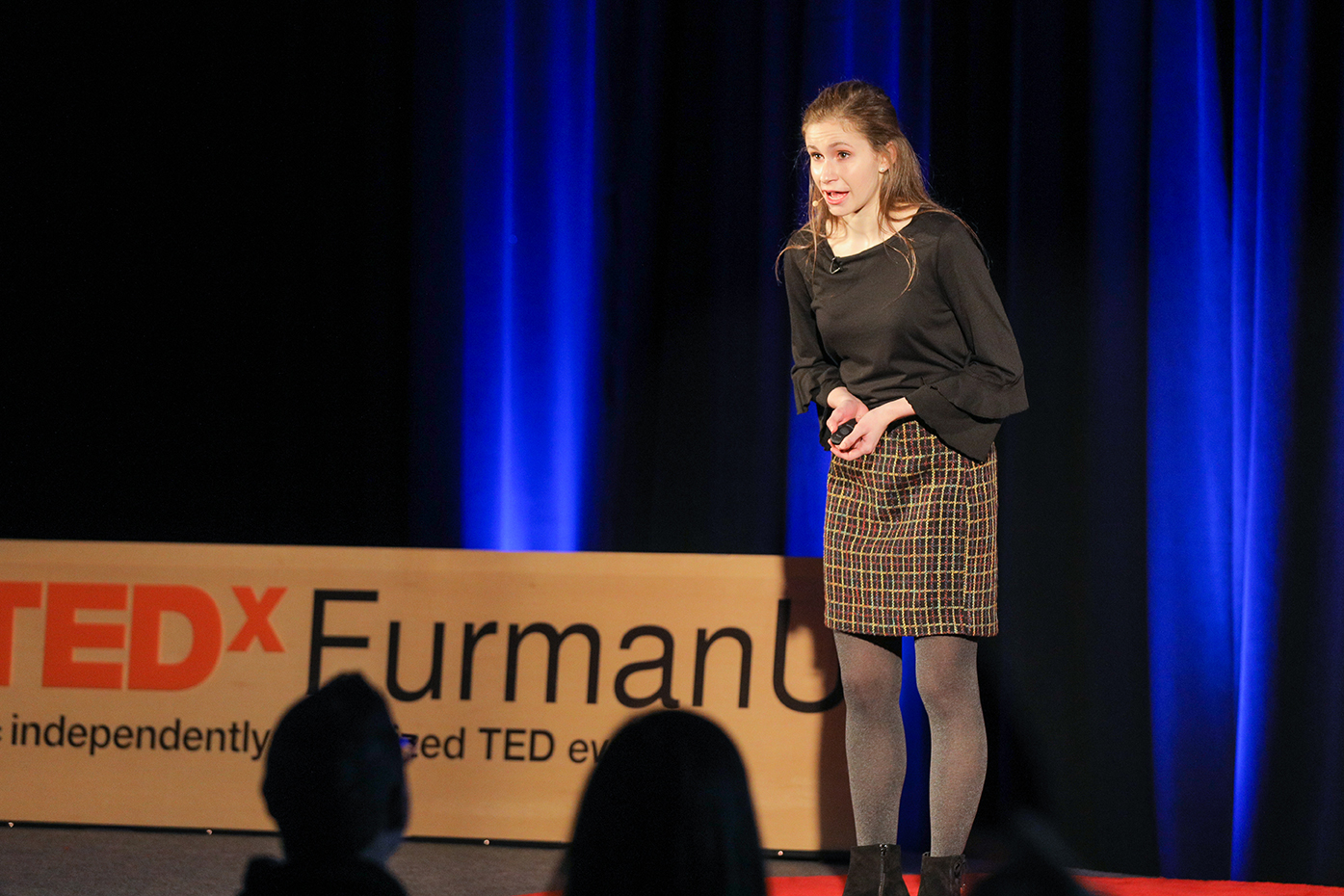TEDxFurmanU speakers explore chronic illness, female empowerment
Nomonde Gila ’19 spoke to educate others — but being part of TEDxFurmanU 2019 was an education for her, too.
Gila, who is South African, sought to inform Americans about the millions of young African women without access to education. But she also hoped to inspire others to engage with and empower the young women in their own lives.
Two days before the conference, she sent her talk to her father.
“He said, ‘start again,’” she said.
He told her to strip away the excess material and be more personal, to tell the story from her own perspective as an African woman, not just a Furman student. Gila cried, then started writing. When she finally placed the second version by the first, she knew her father had been right. He’d asked to her to not just identify the problem but to also “bring light” to the solutions.
She followed his advice to unleash her own voice as she advocated for educating and empowering young African women. The best feedback she got from the event: “I had no idea!”

Olivia Larner ’20, addressed chronic illness in her TEDxFurmanU 2019 talk.
“I taught them something,” Gila said.
“Just because this is the reality, that doesn’t mean we can’t change it,” she said.
Gila was one of two Furman students to speak at the seventh annual TEDxFurmanU.
“We think Ted is a little unique because it’s all about sharing big ideas that may not be your version of the truth,” said Jacob Lollis ’20, a politics and international affairs major and organizer of this year’s conference. “It challenges us to think outside the normal box that we live in.”
Olivia Larner ’20 introduced the “spoon theory” — that everything a person does in a day requires a spoon, or one unit of energy. People who are healthy have dozens of spoons at their disposal. People living with chronic illness might have six or seven at most.
“The hardest part about it is having to make decisions about what you’re going to do in a day,” she said.
Even when they understand, though, people don’t always know what to do with that information. It’s simple: Wash dishes, empty the trash, walk to get coffee.
“It’s the little things like that that help me save those spoons,” Larner said.
She recalled one of the first times she explained it that way to a friend. When Larner had to cancel lunch plans the next day, her friend mentioned spoons.
“I started crying,” Larner said. “I was just so happy that she understood.”